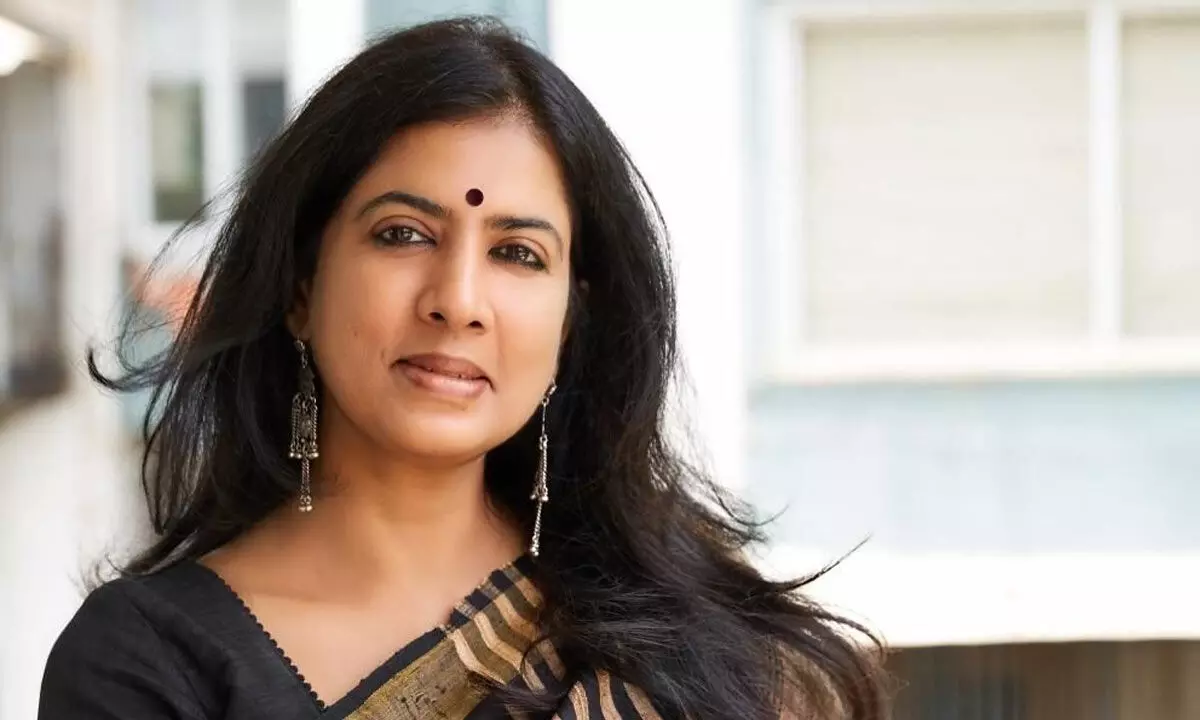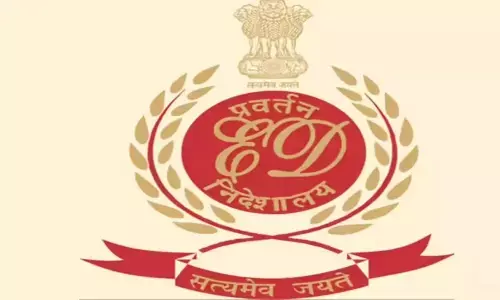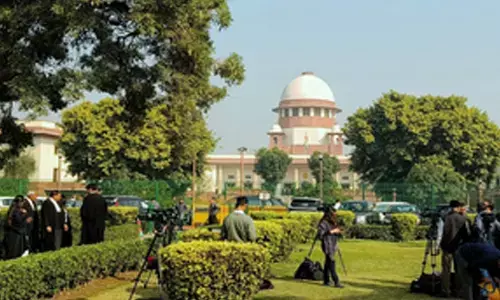Arundhathi Subramaniam and the making of Wild Women

Arundhathi Subramaniam and the making of Wild Women
She says she is recovering from her last book. Laughs, and confesses that it is not entirely true.
She says she is recovering from her last book. Laughs, and confesses that it is not entirely true. And then adds, almost as an afterthought that what she is working on will probably take a very long time to complete. Tentatively titled 'Wild Women', it started out as a book of poems by women mystics all over the country and then expanded into male poets who also channelled female voices and what that is to the timber of their voices.
"And now I feel a need to incorporate praises of the goddesses. It might end up being poems about the female presence in a sacred space. So, it would include women mystics, women voices that have been channelled as men and it would include poems which have had females as a subject which would be the goddesses," says poet Arundhathi Subramaniam, recipient of the Sahitya Akademi award and International Piero Bigongiari Prize in Italy.
For someone who started out in the 80s and 90s when the poetry scene in the country was quite bleak, things are surely looking up now.
"Well, it is not high noon but it is 9 am. With the Internet boom and the performance poetry, and festivals that have begun to recognise that poets are just not useful as panellists -- they can actually work as poets, it is the kind of scene that I would not complain about. We have many more outlets for performances now and one cannot complain. Of course, the news about which I am slightly concerned is that the poetry that turns into instant poetry online has not evolved. I feel it is possible to enjoy the process, that It is possible to enjoy the magic of poetry and at the same time enjoy the long chisel involved."
Considering poetry's rapid inclusion in art, performance art and installation, Subramaniam says she is surprised at how so many people want to use text, and not just as a crutch.
"I think people feel the need to have to write their own scripts has been recognised. There is a need to assert one's own truth, your own narrative -- your own performance piece becomes a way to do that. It's wonderful that poetry is morphing in a way that was unthinkable. Instant poetry five years ago would be unthinkable. I look at them in various forms and why they exist. There is a need for accessible articulation in various areas -- cultural identity and conflict association etc. I am glad that contemporary times are seeing many more forums and ways through which poetry has found its way."
The poet who regularly conducts writing workshops at major liberal arts universities across the country feels that there is room for master classes.
"I thoroughly enjoy such workshops. However, my concern sometimes with the creative writing programme is that it can produce people who sound like variations of each other and there is arisk of standardisation setting in. But the chance to interact at some depth with different poets, who have spent a fair amount of time with their craft can definitely be a good thing."
While prose is being translated at a rapid place and also winning major awards, Subramaniam, who has also translated many poems from Tamil and Gujarati admits that when it comes to verse, it is can be a tough ask as just having an idiomatic version of a language and juggling with the two is tough. And then comes the sound and tone.
"It does not lead to people queuing up to buy it. But it leads to curiosity. The kind of responses from all over the world has been great. One can go on about what has been lost in translation. But is also an invitation to discover, and we do not talk enough about it. This is why I want Bhakti poets translated. At the very least, it is an invitation into the language, the literary landscape. A translation is like training your microscope. To find so much more than what you thought and it is worthwhile in every sense of the word."
In her case, a poem starts with just a line or an image that for some reason stays with her, a trigger or just a visual image.
"Like, I recently met a woman whose husband had died. She said he had looked at her towards the end of his life with eyes that resembled that of a cow. Now, that image is never going to leave me. So it starts with an image that is buzzing in your head or a chance conversation. You jot that down and on a day when things feel auspicious, try and chase it. There is a creative tension. I finish it, veil it. And pretend that I never wrote it. And six months later you unveil it. If there's something -- you hold on to it else..."
Talk to her about the inclusivity in her work, while living in such polarising times, and the poet says that she has experienced what a fragmented gaze can do and the pain it causes to oneself.
"If it was not for the pain that it caused then I would not have embarked on a journey that I call spiritual. The idea of yoga is a discipline that allowed me to find connections. You live a less fragmented life. You find alignment and that is somewhere reflected in the poetry. The desperation to return to a conversation, towards a gaze that includes more than it leaves out," she concludes.




